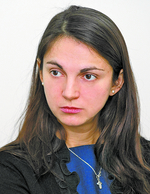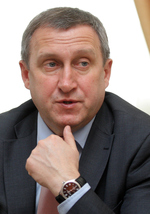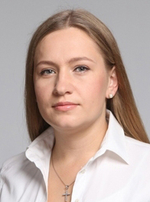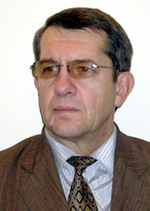National remembrance and “toxic” relations
The Day’s experts on how to ease the growing tension between Kyiv and Warsaw and steer bilateral relations into the future
The relations between Ukraine and Poland have taken a downturn again lately, following some sweeping statements of the Polish leadership. Polish Foreign Minister Witold Waszczykowski said the other day in Lviv that Warsaw was “launching procedures that will not allow people with extremely anti-Polish views to come to Poland.”
He also told the Polish portal wPolityce.pl last April that Poland would protest against the likely accession of Ukraine to the European Union unless this country resolves historical issues and the problem of the Polish minority’s rights.
Now the plot thickens, so to speak. In an interview with the religious TV channel Trwam and Radio Maryja, Poland’s President Andrzej Duda urged the Ukrainian leadership not to appoint persons with anti-Polish views to high offices. But he failed to clarify what he meant by “anti-Polish views” and who he thinks should not be appointed.
Mariana Betsa, Spokesperson of Ukraine’s Ministry of Foreign Affairs, has responded to this strange, to say the least, statement of the Polish head of state. “We would like to emphasize that the Ukrainian leadership is pursuing a pro-European policy and does not employ politicians with an anti-Polish attitude. Ukraine is a strategic partner of Poland, and this principle is the backbone of our policies towards Poland and the Polish people,” Interfax-Ukraine quotes her as saying. She also said Ukraine did not intend to politicize the past Ukrainian-Polish relations and would take a constructive position.
Finally, President Petro Poroshenko of Ukraine also reacted to this situation on Wednesday evening – he called for an extraordinary meeting of the Consultative Committee of the Presidents of Ukraine and Poland. In particular, Poroshenko’s Spokesman Sviatoslav Tseholko, announced: “The recent sweeping statements of the representatives of the official Polish authorities about Ukraine and its leadership are causing serious concern and cannot remain without a proper response.” In his words, Poroshenko called for an extraordinary meeting of the Presidents’ Consultative Committee in order to strengthen strategic partnership between Ukraine and Poland and to avert further escalation of tension.
It will be recalled that the Consultative Committee is an advisory body that is supposed to promote implementation of the interstate agreements aimed at strengthening friendly relations between Ukraine and Poland. The committee is headed by the two presidents’ foreign-policy advisors.
Incidentally, the current aggravation is coming after the Polish Sejm and the Verkhovna Rada of Ukraine adopted a joint Declaration on Remembrance and Solidarity in October 2016, which was expected to put an end to historical disputes. However, in spite of this, the history question remains a source of tension between the two countries.
According to the Ukrainian Institute of National Remembrance, 15 Ukrainian monuments have been desecrated in Poland over the past three years. None of the monuments was restored.
In the same period, vandals have defaced four Polish monuments in Ukraine, but they were all restored at the Ukrainian side’s cost.
Incidentally, the newspaper Den made a contribution to the solution of complicated Polish-Ukrainian problems: in 2004 its library published the book Wars and Peace, or Ukrainians and Poles: Brothers/Enemies, Neighbors written by the well-known Ukrainian historians Viktor Horobets, Volodymyr Panchenko, and Yurii Shapoval under the general editorship of Larysa Ivshyna.
The noted Polish dissident and journalist Adam Michnik emphasized in the preface to the Polish-language edition: “It is difficult but necessary to speak of history. The question is to steer our opinion into the future, to understand that we have a lot of common values and interests and that we can achieve very much together.” It is therefore worthwhile for both Polish and Ukrainian politicians, who take interest in this sensitive issue and strive to develop friendly and close relations, to make use of this intellectual capital.
The Day requested some Ukrainian and Polish experts to offer their own recipes to improve Ukrainian-Polish relations. What must both sides do to develop and make the relations friendly, and steer them into the future, not into the past?
“IT IS SUPER IMPORTANT TO MAKE JOINT EFFORTS TO RESOLVE THE CRUCIAL PROBLEMS OF SECURITY”
Hanna HOPKO, Chairperson, Verkhovna Rada Foreign Affairs Committee, Kyiv:
 “Obviously, not enough has been done in the past 26 years to keep not only Ukraine, but also Poland safe from the Russian threat. Therefore, it is super important for the two countries today to make joint efforts to resolve the crucial problems of security. Above all, it is advisable to consider the following initiatives in the sphere of energy in order to resist Russian energy expansionism in Europe: to raise before the other EU states, the Baltic countries, and Turkey the question of a moratorium on any pipeline projects with participation of Russian companies until Russia meets its commitments under international legal norms, including the 1975 CSCE Helsinki Final Act.
“Obviously, not enough has been done in the past 26 years to keep not only Ukraine, but also Poland safe from the Russian threat. Therefore, it is super important for the two countries today to make joint efforts to resolve the crucial problems of security. Above all, it is advisable to consider the following initiatives in the sphere of energy in order to resist Russian energy expansionism in Europe: to raise before the other EU states, the Baltic countries, and Turkey the question of a moratorium on any pipeline projects with participation of Russian companies until Russia meets its commitments under international legal norms, including the 1975 CSCE Helsinki Final Act.
“On the other hand, to protect ourselves from military aggression and to reduce Russia’s influence on European states, we must seek to make strategic decisions, such as:
• concluding a military-political agreement between Ukraine and Poland on mutual military support (an attack on one of the contracting parties is considered an act of aggression against each of the member states);
• initiating negotiations on the formation of a regional defense alliance which is based on the Ukrainian-Polish tandem and may include other interested states;
• mutual support on the international arena;
• carrying out joint MIC projects and active cooperation of both sides.
“If economic sanctions and international condemnation fail to produce the expected result, it is only possible to create an effective antidote to Russia’s aggressive policy by making joint efforts in the defense and energy sectors. These sectors remain a strategic resource of Europe today and, at the same time, an extremely sensitive point for Moscow.”
“A DIALOG IS ALWAYS MORE HELPFUL THAN ULTIMATUMS”
Andrii DESHCHYTSIA, Ambassador of Ukraine to the Republic of Poland, Warsaw:
 1 “Both sides should be duly aware of the strategic importance of Ukrainian-Polish partnership for the two states as well as for the region.”
1 “Both sides should be duly aware of the strategic importance of Ukrainian-Polish partnership for the two states as well as for the region.”
2“Cooperation between Ukraine and Poland in all the spheres of bilateral relations is successfully developing, while there are certain differences of view in historical matters only, which should not be politicized.”
3“Ukraine and Poland have a lot of instruments and mechanisms of cooperation, which should be used to resolve moot points in the history policy and to seek mutually-acceptable solutions.”
4 “Both sides should continue the dialog to understand each other’s positions and assessments of the historical past, which may not always coincide. We must presume in this connection that a dialog is always more helpful for the development of bilateral relations than ultimatums and demands.”
FOUR STEPS TO IMPROVE POLISH-UKRAINIAN RELATIONS
Lukasz ADAMSKI, Polish historian; vice director, State Center for Polish-Russian Dialog and Understanding; political analyst; Warsaw:
 “There is a paradoxical situation in Polish-Ukrainian relations: both sides want to cooperate, but nothing comes out of this. It is often said that the obstacle is a different interpretation of history or failure of the Poles to understand why the Ukrainians honor the people who professed radical nationalism and were responsible for ethnic cleansings of the Polish population, or failure of Ukrainians to understand why Poland is launching a campaign at a very difficult moment for Ukraine aimed at causing the Ukrainians to radically change their idea of their history and discrediting the people who fought for the freedom of Ukraine. I personally think that the main problem is lack of trust between the two countries. This lack of trust results not only from the different values of political culture that dominate in Ukraine and Poland, from different worlds-views of the people engaged in an intellectual or political dialog or from different ideas of security in Poland and in Ukraine – it also results from the negative experience of resolving disputes in the past 10 years. Whenever a partner fails to understand the demands and proposals of the other side, it not only distances mutual understanding, but also casts doubt on the sincerity of the other side’s intentions. And if there are a lot of such situations, any small step can shake confidence. What is the way out?
“There is a paradoxical situation in Polish-Ukrainian relations: both sides want to cooperate, but nothing comes out of this. It is often said that the obstacle is a different interpretation of history or failure of the Poles to understand why the Ukrainians honor the people who professed radical nationalism and were responsible for ethnic cleansings of the Polish population, or failure of Ukrainians to understand why Poland is launching a campaign at a very difficult moment for Ukraine aimed at causing the Ukrainians to radically change their idea of their history and discrediting the people who fought for the freedom of Ukraine. I personally think that the main problem is lack of trust between the two countries. This lack of trust results not only from the different values of political culture that dominate in Ukraine and Poland, from different worlds-views of the people engaged in an intellectual or political dialog or from different ideas of security in Poland and in Ukraine – it also results from the negative experience of resolving disputes in the past 10 years. Whenever a partner fails to understand the demands and proposals of the other side, it not only distances mutual understanding, but also casts doubt on the sincerity of the other side’s intentions. And if there are a lot of such situations, any small step can shake confidence. What is the way out?
“I would suggest the following scenario now: to confirm politically that a different vision of the history of Poles and Ukrainians must not mean an unfavorable attitude to each other; to understand that, owing to its conflict-prone potential, history must not be ignored but, on the contrary, must be still more analyzed and critically assessed.
“In other words, there should be more discussions, including with Polish and Ukrainian nationalists. We should agree on which publicly pronounced ideas or practical actions of the people responsible, one way or another, for the Polish-Ukrainian dialog are inadmissible and which statements and actions impair Polish-Ukrainian relations. The Polish and Ukrainian public authorities of all levels that deal with bilateral relations should feel the need to coordinate their actions, particularly when there is a mere suspicion of a threat to Polish-Ukrainian relations. An illustrative example of such a negative practice of non-coordination is the destruction of a UPA monument in Hruszowice by local nationalists at the request of the local Polish authorities or the Lviv Oblast Council-ordered placement of a plaque in Verecke Pass, which alleges that this part of Ukraine was occupied by Poland and 600 Carpathian Sich members were shot by Polish border guards in March 1939.
“If the following four steps – intensification of the history-related dialog, the awareness of good practices in the relations between Poland and Ukraine, a better coordination between the public authorities of Poland and Ukraine in the questions of Polish-Ukrainian relations, and the engagement of all the strata, including nationalists, in both countries into the dialog – are taken, it will become possible to restore trust and resolve the gravest problem – Poland’s categorical rejection of the cult of OUN-UPA figures.”
“CARRYING OUT JOINT PROJECTS IS A KEY TO IMPROVED RELATIONS”
Oksana YURYNETS, co-chairperson, Group for Inter-Parliamentary Ties with the Republic of Poland; Member of the Ukrainian Parliament; Kyiv:
 “We often look at Ukrainian-Polish relations only through the prism of differences in the questions of national remembrance. This is essentially the root of all evil. History should be left to historians, while building the future is the domain of communities. They are doing this quite well today. Carrying out joint projects is a key to improved relations. I advise you to have a glimpse of cooperation between the local self-government and the communal sector. Here are just a few examples:
“We often look at Ukrainian-Polish relations only through the prism of differences in the questions of national remembrance. This is essentially the root of all evil. History should be left to historians, while building the future is the domain of communities. They are doing this quite well today. Carrying out joint projects is a key to improved relations. I advise you to have a glimpse of cooperation between the local self-government and the communal sector. Here are just a few examples:
n a fast train left Kyiv for Przemysl at the end of last year (not least thanks to the joint efforts of local communities on both sides);
n it was agreed to set up new checkpoints on the Ukrainian-Polish border (Poland allocated 100 million zlotys for the Malchowice-Nizankowice checkpoint to be built next year);
n Lviv Oblast and Subcarpathian Voivodeship have submitted most of the cultural heritage protection projects for a competition as part of the Poland-Belarus-Ukraine program.
“Last month we marked in Lviv the 150th anniversary of the foundation of the Lviv Medical Society, an entity the Ukrainians and Poles jointly set up to lay the groundwork for self-government in the medicine of that time. Let me say again that joint projects are a thing of not only the past, but also of the future.
“We should not focus on scandalous statements, for they only hinder mutual understanding. The truth is Polish politicians have begun to work for the voter whose favor they are trying to win by way of these statements. Some people are clinging to their offices in this way. We must react but not plunge into the dispute which is of an exclusively personal benefit.
“Relations will inevitably improve. The Polish know very well that we are standing at the outpost of their security. Polish MEP Anna Fotyga said at the 63rd Session of the NATO Parliamentary Assembly in Bucharest: ‘Ukraine is defending all of us today. And we should learn the lessons of this situation. It is also our chance to reform our security system.’ Incidentally, concern over security is one more key to improve relations. It seems to be high time Ukraine and Poland concluded an agreement on reciprocal military assistance. An attack on one of the countries will be considered an act of aggression against each of the treaty signatories.
“Energy security is also what keeps up our mutual understanding. There are several items on the agenda: a moratorium on any pipeline projects with participation of Russian companies as long as Moscow is violating its international commitments; an energy bridge from the Khmelnytskyi Nuclear Power Plant to Rzeszow; finishing the construction of the Brody-Plock oil pipeline; and blocking the construction of Nord Stream 2. In these matters, our relations cannot help but improve.
“In general, the tendency towards positive results in the joint Ukrainian-Polish projects must not let itself be marred by negative things. I hope the visit of the Polish president to Ukraine will also be constructive and conducive to mutual understanding.”
“WE SHOULD WORK FOR INCREASING THE NUMBER OF ‘UKRAINE’S FRIENDS’ IN POLAND”
Kateryna ZAREMBO, deputy director, New Europe center:
 “As an analyst, I can say that Ukrainian-Polish relations have become a more difficult subject in the past few years. Naturally, there are also some examples of successful cooperation, when at least experts in both countries can find a common language – the example is a joint document on the vision of bilateral relations drawn up by a group of Ukrainian and Polish experts as part of the Stefan Batory Foundation and IMF project.
“As an analyst, I can say that Ukrainian-Polish relations have become a more difficult subject in the past few years. Naturally, there are also some examples of successful cooperation, when at least experts in both countries can find a common language – the example is a joint document on the vision of bilateral relations drawn up by a group of Ukrainian and Polish experts as part of the Stefan Batory Foundation and IMF project.
“In my view, Ukraine’s Ministry of Foreign Affairs is right to respond softly and diplomatically to the sweeping statements from Poland without spinning the wheel of mutual complaints. But I presume that, as elections in Poland are coming up, the ‘Ukrainian card’ will be used more actively for the domestic Polish user. This is why we must make special efforts to influence the Polish public and opinion leaders so that the ‘Ukrainian card’ stops working.
“Of course, healing the collective historical trauma of the Poles is not a question of one or two years, but this must not hinder Ukraine’s growing attractiveness in the eyes of Poles in other fields, such as culture or religion, through such joint measures as, for example, the recent opening of John Paul II Street in Kyiv. Incidentally, even in spite of an interstate crisis, the latest sociological survey conducted by the Polish company CBOS shows that friendly feelings for the Ukrainians have risen by 9 percent – from 27 to 36, compared to the previous poll. Ukraine should work for increasing the number of ‘Ukraine’s friends’ in Poland.”
“WE SHOULD GO ON SPEAKING WITHOUT ATTACHING A POLITICAL MEANING TO HISTORICAL MATTERS”
Leonid ZASHKILNIAK, professor, Lviv National Ivan Franko University:
 “A week ago, the Ukrainian-Polish Partnership Forum under the auspices of the foreign ministries of Ukraine and Poland called for taking certain political and economic steps to improve Ukrainian-Polish relations. I can only add that, as far as history is concerned, we should go on speaking without attaching a political meaning to historical matters. Moreover, we must not absolutize any episodes in our history. Otherwise, this will adversely affect our bilateral relations. But, on the other hand, I’d like to note that the 12-page statement of the abovementioned forum uses the term ‘Volhynian massacre.’ I categorically oppose embedding journalistic and literary terms into historical memory. There was no massacre at all. The 1944-45 events in Volhymia should be called by such common words as conflict, war, or interethnic clashes.
“A week ago, the Ukrainian-Polish Partnership Forum under the auspices of the foreign ministries of Ukraine and Poland called for taking certain political and economic steps to improve Ukrainian-Polish relations. I can only add that, as far as history is concerned, we should go on speaking without attaching a political meaning to historical matters. Moreover, we must not absolutize any episodes in our history. Otherwise, this will adversely affect our bilateral relations. But, on the other hand, I’d like to note that the 12-page statement of the abovementioned forum uses the term ‘Volhynian massacre.’ I categorically oppose embedding journalistic and literary terms into historical memory. There was no massacre at all. The 1944-45 events in Volhymia should be called by such common words as conflict, war, or interethnic clashes.
“And if we are speaking of history, we should use the terms that are adequate to events rather than journalistic or emotional expressions.
“I also protested against the Polish Sejm using the term ‘homicide’ in its resolution on the Volhynian events in 1944-45 because it is synonymous with ‘genocide’ and is not applicable to those events. In that case we are supposed to call the killing of Ukrainians also as genocide against the Ukrainians. It is an inadequate term, but it is still used in Poland’s political sphere. And the Volhynia conflict does not fall under this definition. Although the term ‘genocide’ is broad in meaning, this action is usually resorted to by the governmental bodies that have relevant means to commit genocide, including the military and administrative machines.
“We must go on discussing these matters, and we are doing so. There was recently the 6th forum of historians under the aegis of two – Ukrainian and Polish – institutes of national remembrance.
“In this case, the governmental bodies that shape the history-related policy in the state should display initiative. But they should rely on scientifically justified terms and take into account that, within the limits of an interethnic conflict, there were no signs of genocide or ethnic cleansing on the part of the Ukrainians. On the other hand, Operation Vistula, not to mention the events of 1944-45, are nothing but ethnic cleansings of the Ukrainians. But we do not use such terms, with due account of the difficult situation on the Ukrainian-Polish frontier.
“The history-related policy of the current Polish leadership represented by the Law and Justice party is turning Poland back, to a certain extent, by 50-100 years. Meanwhile, I know that there are some liberal associates at the Polish Institute of National Remembrance, who can see that this policy has a negative effect on Warsaw’s relations with not only Kyiv, but also Brussels. Yet, in my opinion, this period will soon sink into oblivion, so I am optimistically looking into the future.”
P.S. At the end of past week, the Polish Radio announced that Warsaw had accepted the proposal of President Petro Poroshenko to hold a session of the Consultative Committee of the Presidents of Poland and Ukraine in the immediate future. The Presidential Administration of Ukraine has in turn announced that Krzysztof Szczerski, chief of the Polish President’s Cabinet and co-chairman of the presidents’ consultative committee, is ready to receive his Ukrainian counterpart and a Ukrainian delegation in Poland. The Presidential Administration emphasized that it will be “the next opportunity – after the latest visits of Polish First Deputy Prime Minister Piotr Glinski and Foreign Minister Witold Waszczykowski to Ukraine – to present to the Ukrainian side expectations about the most important issues of Polish-Ukrainian relations.”
Newspaper output №:
№69, (2017)Section
Topic of the Day





